Wirewound Resistors
A wirewound resistor is a passive electrical component designed to limit or regulate current flow in a circuit. It is constructed by winding a resistive wire—typically made from alloys such as Nichrome or stainless steel—around a non-conductive core made of ceramic or fiberglass. The resistance value is controlled by adjusting the wire’s alloy type, length, and thickness.
Wirewound resistors are especially well-suited for high-power and industrial applications, where their durability and precision are essential. They are commonly used in systems such as circuit breakers, fuses, and current sensing circuits, as well as in high-pulse environments.
Key Features:
Helical Wire Element: Open-coil design enhances heat dissipation; commonly made from Nichrome or stainless steel.
High Precision: Excellent for current sensing due to low temperature coefficients and stable resistance values.
Robust Construction: Often built with ceramic, aluminum, or silicone casings, and stainless steel terminals and hardware for reliable mechanical and electrical performance.
Types Available:
Commercial Standard Wirewound Resistors
Non-Inductive Wirewound Resistors (ideal for minimizing inductance in high-frequency circuits)
High Power Wirewound Resistors (designed for demanding thermal and electrical loads)
Wirewound resistors offer excellent performance, reliability, and customization, making them a preferred choice in a wide range of electrical and industrial systems.
Showing 1–9 of 194 results
-
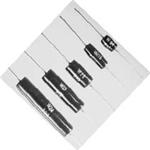
15R680 IRC RESISTOR 2W 5% 68 Ohms Axial
Read more -
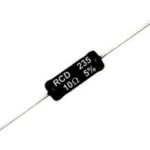
210-1000-FBQ RCD Components Resistor 100Ohms 40V 1% Axial
Read more -

280-CR5-20K-RC Xicon Wirewound Resistor 20Kohms 5% Axial
Read more -
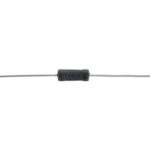
2CS-0.10R-J ATE Electronics Resistor 0.1 OHM 3W 5% Axial
Read more -
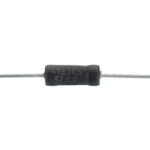
2CS-100R-J ATE Wirewound Resistor 100 Ohms 3W 5 %, Axial
Read more -

2CS-1R0-J, ATE Electronics Wirewound Resistor 1Ohm 3 W 5 %, Axial
Read more -
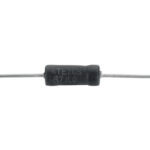
2CS-22R-J ATE Wirewound Resistor 22 Ohm 3W 5 %, Axial
Read more -
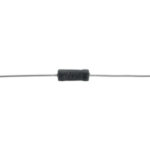
2CS-33R-J ATE Wirewound Resistor 33 OHM 3 W 5 %, Axial
Read more -

2CS-R018-J ATE Wirewound Resistor 0.018 Ohm 5% Axial
Read more